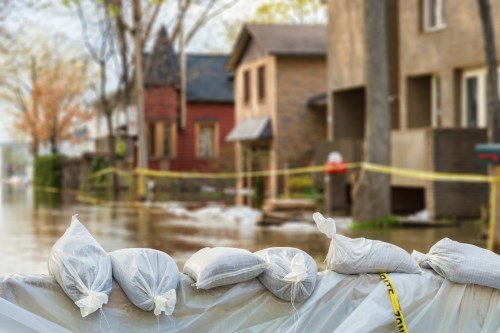Storm Recovery
Storm Cleanup Information

Resources for affected individuals
| Key steps to returning to a flooded home |
3. Wear protective clothing 4. Document damages and contact your insurance company. 5. Dry out your home as quickly as possible to reduce mold. Monitor moisture levels. 6. Throw away unsafe food. Do not drink water until it is determined safe. 7. Remove debris. 8. Remove damaged drywall and flooring. 9. Assess submerged appliances.
|
| Flood clean up & recovery resources |
|
The US Environmental Protection Agency has provided step by step instructions for returning home after a flood. American Red Cross Recovery & Disaster Cleanup Tips
SLO County Planning and Building Homes with Asbestos Clean Up Information The Contractors State License Board (CSLB) As a consumer protection agency, and in its role regulating California’s construction industry, CSLB is responsible for protecting those whose homes and property are directly affected by storms and floods, as well as other catastrophic events like wildfires, mudflows, earthquakes, and pipeline explosions. CSLB’s post-disaster mission is to help ensure that survivors are not victimized by unlicensed or unscrupulous contractors who may try to take advantage of them during the recovery and rebuilding process. It is a felony to contract without a license in a declared disaster area. Consumers can protect themselves by using CSLB’s resources to check a contractor’s license status and history.
|
| Information on Red, Yellow, and Green Tags |
|
Rapid Evaluation Safety Assessment (RESA) is an important step in assessing the damage and safety concerns of structures after a natural disaster. County Planning and Building staff are currently conducting these safety evaluations of homes affected by the recent flooding. Red Tag: Unsafe. Building is damaged and poses an imminent threat to life or safety under expected loads or other unsafe conditions. No access to the structure is permitted. Repairs must be made, and a permit is required. Yellow Tag: Restricted Use. There is some risk from damage in all or part of the building that does not warrant a red tag. The extent of damage may be uncertain or cannot be ascertained within the time and resources available to a Rapid Evaluation team. Repairs must be made, and a permit is required based on work neccessary. Green Tag: Inspected. Building can be damaged, yet remains safe. The safety of the building was not signifcantly changed by the disaster. County Planning Rapid Assessment Information
|
| Immediate recovery resources |
| Long term recovery resources |
|
| Resources for Agencies and Businesses |
|
Reopening your food establishment after flooding Apply for Small Business Administration Loans Onsite Wastewater Treatment Systems / Septic Systems After a Flood |
Red Cross Recovery Resources for San Luis Obispo - English
Red Cross Recovery Resources for San Luis Obispo - Spanish
City Specific Recovery Information
Contact Us
The County Office of Emergency Services (OES)
1055 Monterey Street D430
San Luis Obispo, CA 93408
County OES Business Line: 805-781-5678
County OES Business Email: oes@co.slo.ca.us




